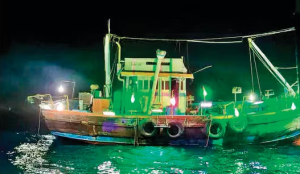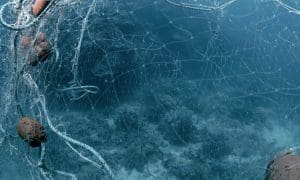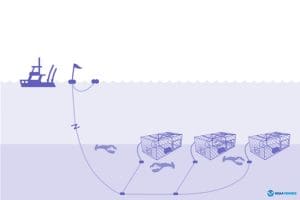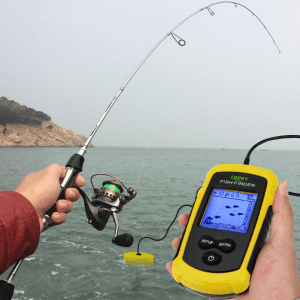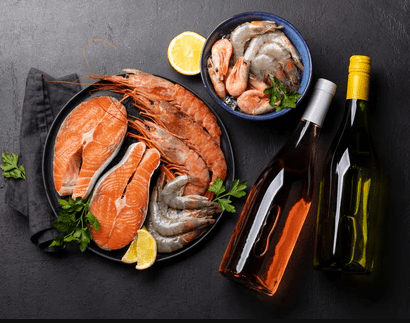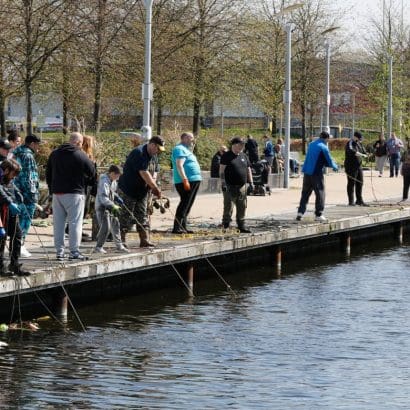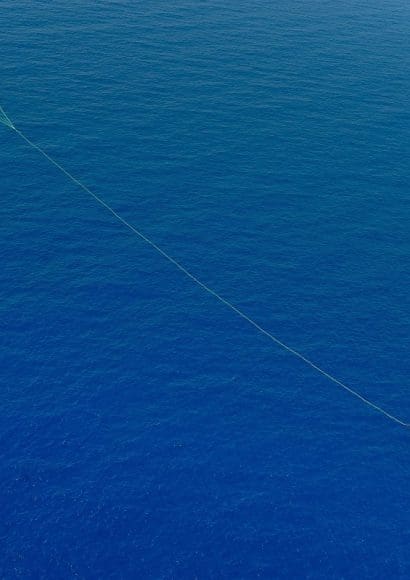
Fishing with lights has become a common practice among night fishermen. However, many are unaware that this activity is illegal in numerous places. In this article, we will explore the reasons behind this prohibition, the consequences of ignoring the law, and the sustainable alternatives that can be adopted.
Contents
Why is Fishing with Lights Illegal?🐟
Impact on Marine Wildlife
The use of artificial lights to attract fish disrupts the natural behavior of many marine species. Under the influence of these lights, fish become disoriented, making them easier to catch. This method not only rapidly reduces fish populations but also affects other species that rely on them for food. The imbalance caused by such practices can lead to long-term ecological consequences.
Consequences:
- Loss of biodiversity: Fish that are easily caught with lights often include key species that play significant roles in the ecosystem.
- Imbalance in the marine ecosystem: Predatory fish may find it harder to locate prey, leading to disruptions in the food web.
- Disruption of the food chain: Many marine animals rely on fish as a primary food source, and their populations can decline if fish numbers dwindle.

Destruction of Habitats
Fishing with lights can also contribute to the destruction of marine habitats. The massive concentration of fish in a small area can lead to the deterioration of the seabed and the destruction of corals, algae, and other vital structures. Over time, these areas may become barren, unable to support the diverse marine life that once thrived there.
Examples of Damage:
- Damage to coral reefs: The physical presence of many fish in one area can break and damage delicate coral structures.
- Destruction of seagrass beds: Fish concentrated by lights can uproot seagrass, leading to erosion and habitat loss.
- Alteration of spawning areas: Critical breeding grounds for many species can be destroyed, leading to population declines.

Impact on Fisheries Management
The indiscriminate nature of light-based fishing can make it difficult for fisheries managers to maintain sustainable fish populations. By targeting a wide range of species and sizes, this practice can undermine conservation efforts and make it harder to manage fish stocks effectively.
Management Challenges:
- Data collection: It becomes challenging to collect accurate data on fish populations and their health.
- Enforcement: Regulating and monitoring light-based fishing requires significant resources and effort.
- Stock assessments: The unpredictable nature of catches makes it difficult to perform reliable stock assessments.
Enhance Your Dining Experience with Seafood and Wine Fusion.
Pairing seafood with the perfect wine can elevate your dining experience to new heights. The delicate flavors of seafood are wonderfully complemented by a range of wines, from crisp whites to robust reds. Explore how different combinations can bring out the best in both your seafood dishes and your favorite wines. For more insights and tips on perfect pairings, check out our guide on Seafood and Wine Fusion.
Legal Consequences of Fishing with Lights.🐟
Fines and Penalties
Authorities have implemented strict regulations to prevent fishing with lights. Fishermen who violate these laws face severe penalties, including substantial fines and, in some cases, the confiscation of equipment and boats. These measures are in place to deter illegal activities and protect marine environments.
Examples of Penalties:
- Fines ranging from hundreds to thousands of dollars: The exact amount depends on the severity and frequency of the offense.
- Loss of fishing licenses: Repeat offenders may have their fishing licenses revoked permanently.
- Legal proceedings: In some cases, violators may face court trials and potential jail time.

Impact on the Fishing Community
Non-compliance with the laws affects not only the offender but the entire fishing community. Illegal practices can lead to stricter regulations for everyone, harming those who follow the rules and depend on fishing for their livelihood. Trust between fishermen and regulators can erode, leading to conflicts and decreased cooperation.
Effects on the Community:
- Reduced trust between fishermen and regulators: Honest fishermen may feel unfairly targeted by increased scrutiny.
- Decrease in fishing quotas: To compensate for illegal catches, authorities may reduce allowable catches for everyone.
- Increased controls and restrictions: More stringent regulations can make fishing more complicated and costly.
Environmental and Economic Costs
The environmental damage caused by illegal fishing practices can have far-reaching economic consequences. Declines in fish populations can lead to reduced catches, affecting the livelihoods of fishermen and the industries that depend on them. The costs of enforcing regulations and restoring damaged habitats also place financial burdens on governments and communities.
Economic Impact:
- Loss of income: Declining fish populations can reduce the earnings of fishermen and related businesses.
- Increased enforcement costs: Governments must invest more in monitoring and enforcement efforts.
- Restoration expenses: Repairing damaged habitats requires significant financial and labor resources.
5 Delicious Recipes with Pescadilla
Pescadilla, a versatile and flavorful fish, can be the star of many delightful dishes. Whether you prefer it grilled, baked, or in a savory stew, there are countless ways to enjoy this seafood delicacy. Discover new and exciting ways to prepare pescadilla with our collection of 5 Recipes with Pescadilla. These recipes are sure to impress your family and friends, offering a delicious and healthy meal option for any occasion.
Sustainable Alternatives to Fishing with Lights.🐟
Traditional Fishing Methods
Instead of relying on artificial lights, fishermen can turn to traditional methods that have proven to be effective and sustainable over time. These techniques are not only less harmful to the environment but also promote more ethical and responsible fishing. They often involve more selective and targeted approaches, reducing bycatch and habitat damage.
Alternative Methods:
- Fishing with rod and hook: This method allows for selective fishing, reducing bycatch and minimizing habitat damage.
- Use of sustainable nets: Modern nets are designed to catch specific species and sizes, reducing the impact on non-target species.
- Trap fishing techniques: Traps can be set in specific locations to target desired species without the widespread disruption caused by lights.

Technological Innovations
Technology also offers innovative solutions for sustainable fishing. Devices such as sonars and GPS can help locate fish schools without the need for artificial lights, thereby minimizing environmental impact. These tools enable fishermen to find and catch fish more efficiently and responsibly.
Innovations:
- Sonar for fish detection: Sonar technology allows fishermen to identify fish schools without disrupting their natural behavior.
- GPS for precise navigation: GPS devices help fishermen navigate efficiently, reducing fuel consumption and environmental impact.
- Eco-friendly nets: New net designs minimize bycatch and reduce damage to marine habitats.

Community-Based Fisheries Management
Involving local communities in fisheries management can lead to more sustainable practices. By giving fishermen a stake in the health of their resources, community-based management encourages stewardship and compliance with regulations. Local knowledge and cooperation can also enhance monitoring and enforcement efforts.
Community Initiatives:
- Co-management agreements: Communities work with governments to manage fisheries sustainably.
- Local monitoring programs: Fishermen help monitor fish populations and report illegal activities.
- Education and training: Providing fishermen with knowledge and skills for sustainable practices.
Conclusion.🐟
In summary, fishing with lights is an illegal practice due to its severe consequences for the environment and fishing communities. It is crucial for fishermen to adopt more sustainable methods and respect the laws to ensure the preservation of our oceans. Sustainable fishing practices not only protect marine life but also secure the livelihoods of future generations of fishermen.

